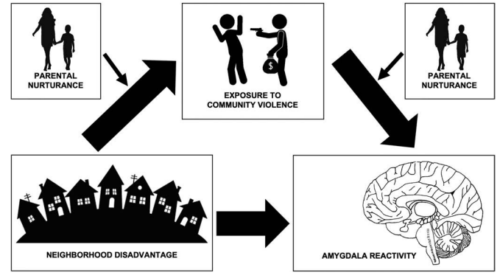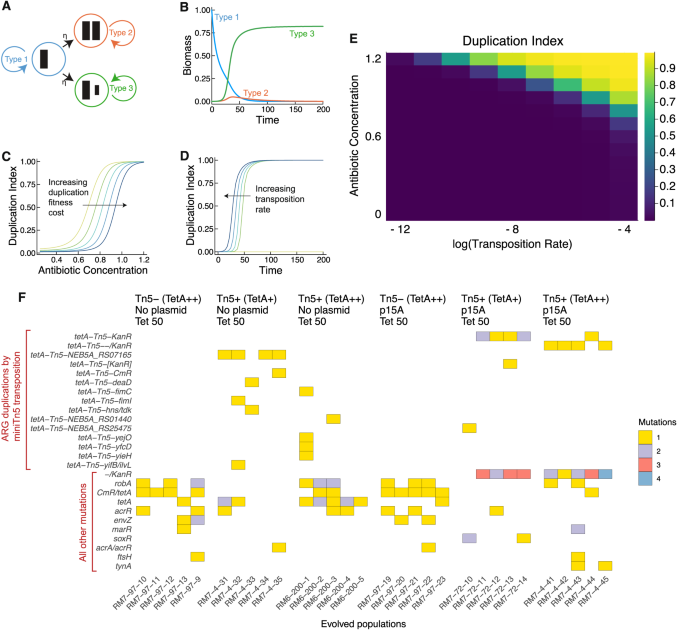2024-02-22 ミシガン大学
<関連情報>
- https://news.umich.edu/living-in-a-violent-neighborhood-affects-childrens-brain-development/
- https://psycnet.apa.org/doiLanding?doi=10.1037%2Fdev0001712
扁桃体の反応性と親の養育の保護的役割を関連付けるメカニズムとしての暴力地域への曝露
Exposure to community violence as a mechanism linking neighborhood disadvantage to amygdala reactivity and the protective role of parental nurturance.
Suarez, G. L., Burt, S. A., Gard, A. M., Klump, K. L., & Hyde, L. W.
Developmental Psychology
DOI:https://psycnet.apa.org/doi/10.1037/dev0001712

Emerging literature links neighborhood disadvantage to altered neural function in regions supporting socioemotional and threat processing. Few studies, however, have examined the proximal mechanisms through which neighborhood disadvantage is associated with neural functioning. In a sample of 7- to 19-year-old twins recruited from disadvantaged neighborhoods (354 families, 708 twins; 54.5% boys; 78.5% White, 13.0% Black, 8.5% other racial/ethnic group membership), we found that exposure to community violence was related to increased amygdala reactivity during socioemotional processing and may be one mechanism linking neighborhood disadvantage to amygdala functioning. Importantly, parenting behavior appeared to modulate these effects, such that high parental nurturance buffered the effect of exposure to community violence on amygdala reactivity. These findings elucidate the potential impact of exposure to community violence on brain function and highlight the role parents can play in protecting youth from the neural effects of exposure to adversity. (PsycInfo Database Record (c) 2024 APA, all rights reserved)
Impact Statement
Although prior studies have primarily focused on family-level adversities, developmental researchers are now paying increased attention to the effect of neighborhood-level adversity on youth brain development. We find that increased exposure to community violence is related to heightened amygdala reactivity to threat and may be a mechanism explaining the link between neighborhood disadvantage and brain function in youth. Further, the study highlights that nurturing parenting can protect children from the risks posed by living in a disadvantaged and dangerous neighborhood. (PsycInfo Database Record (c) 2024 APA, all rights reserved)


